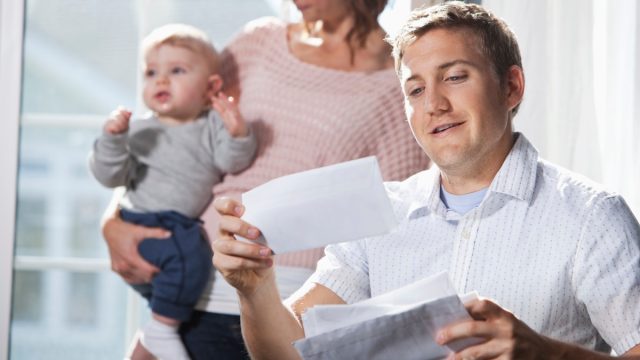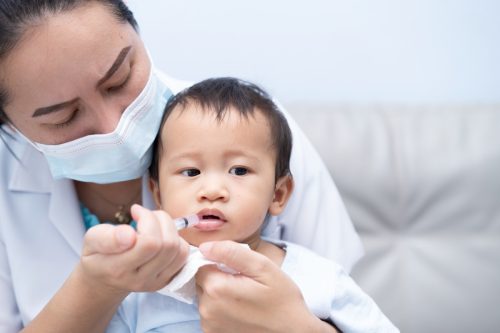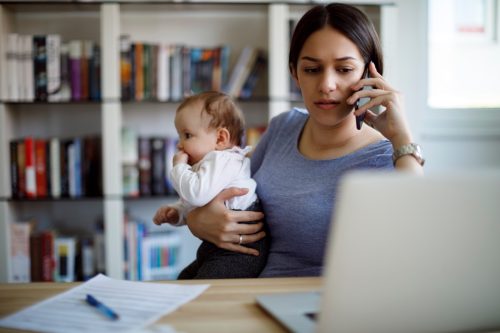You Could Get an Extra $1,000 Monthly Stimulus Check If You Live Here

Since 2020, the federal government has sent out three separate stimulus payments to people across the country in order to help offset financial burdens brought on by the COVID pandemic. But frankly, it’s been a while: The last time most of us received that kind of federal aid was in March 2021, when the Internal Revenue Service (IRS) started sending out the third stimulus check worth up to $1,400. And while a number of people have been pushing for a fourth payment, it is extremely unlikely that will happen. As it turns out, however, one major U.S. city has announced plans to send out supplemental checks to certain residents each month. Read on to find out if you could receive additional aid in 2022.
READ THIS NEXT: The IRS Warns You’ll Have to Return Stimulus Money If You Did This.
Some states have been providing residents with additional aid.

Despite there being little to no chance of another nationwide stimulus payment, some states have been working to provide extra money at the local level. In fact, according to Newsweek, three states are set to send stimulus checks to residents this month: California, Delaware, and Indiana. Starting in May, eligible California residents will receive a check for either $600 or $1,200, depending on various qualifications. Meanwhile, Delaware and Indiana will send out smaller tax rebates of $125 and $300 per person, respectively, to eligible recipients.
And Maine is set to start sending out $850 stimulus checks in June of this year, Forbes recently reported. According to the magazine, Gov. Janet Mills signed a supplemental budget on April 20 to authorize a one-time direct payment to taxpayers in the state who make less than $100,000 as an individual or $200,000 as a couple.
And now one major city is offering monthly stimulus checks to some.

For certain people, hope for future aid might not just be a one-time deal: Baltimore is gearing up to give out monthly checks to some of its residents with no strings attached, Insider reported on May 7. According to the news outlet, the Maryland city will be issuing direct payments to 200 young parents, starting this summer. Those residents will receive $1,000 every month for two years, and they will have several choices for how they can receive their funds, according to Adam Roseman, the CEO of Steady, the platform that Baltimore will use to deliver the funds. The various options include a bank account, PayPal, or even Venmo.
“The administrative burden for the recipient is that they don’t have to do anything,” Roseman told Insider. “Once they set it, it’s set and then the money comes every month and there’s nothing else that they need to do.”
RELATED: For more up-to-date information, sign up for our daily newsletter.
This decision was made as a result of the pandemic.

Baltimore Mayor Brandon Scott told Insider that the decision to provide young parents with a guaranteed-income was partly based on the financial impact of the COVID pandemic. “We know that folks have been struggling in Baltimore for far too long, but even more so after COVID-19,” he explained. “Our lower income residents, particularly our young parents, have faced the worst of the pandemic and the economic fallout, and they really need this now more than ever.”
The mayor said the program is also meant to help increase the time that low-income parents are able to spend with their children.”We want to help folks meet rent and prevent eviction,” Scott added. “We want them to secure transportation so they can obtain employment, get their children to and from school, and spend more time with their children because they don’t have to spend three or four hours on the bus. We wanna be able to help them pay for childcare.”
Qualifying residents only have one day left to apply for the program.

According to Insider, the guaranteed-income program in Baltimore will be accepting applications through May 9 in order to choose the 200 residents who will receive monthly payments. But parents must be between the ages of 18 and 24, and live in Baltimore City in order to apply. Their income will also need to be 300 percent or less than that of the federal poverty level, which would be about $69,090 for a family of three, per Insider.
The news outlet also reported that recipients chosen by the program will be observed by researchers, who will track outcomes for things like this mental health, employment, and food security. “When you are a city that has the deep health disparities that we have here in Baltimore—and you know that a lot of that is driven from the stress of not being able to provide for your family, not being to afford healthier options and food—we would be doing this the incorrect way if we weren’t thinking about this from a health and mental health perspective,” Scott explained.
READ THIS NEXT: The No. 1 Reason You Could Get Audited by the IRS, Experts Warn.